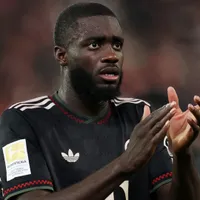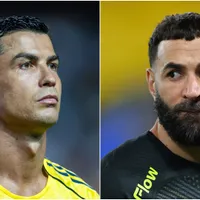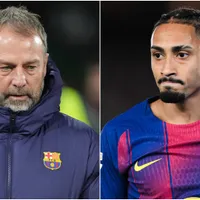For most football fans, when discussions come round to arguing about who was the greatest English striker of all time, one name will surely always be brought up. William Ralph Dean or Dixie Dean as he became better known is a legend throughout footballing history, with a record that possibly may never be beaten.
Born in Tranmere in 1907, Dean was signed up as a schoolboy by Tranmere Rovers whilst they were in the Third Division and he managed to start 3 games in his first season, but didn’t find the net. However, his first proper season aged just 17, saw him unleashed hitting 27 goals in 27 games in the league. This brought him to the attention of Everton, and he was bought for £3,000 in April 1925. He managed to get 7 games under his belt for the Toffees, getting 2 goals but few fans would realise the potential the young striker was about to show for Everton over the next 13 seasons.
His first full season, 1925-26 at Goodison saw the striker smash 32 goals in 38 league games. From relative obscurity, he had become the most feared striker in English football for his goal rate, his power and his strength on the ball. As his career continued to ascend, he came to the attention of the F.A selection committee and made his England debut in the 1926-27 season. From being one of the most feared strikers in the English league, Dean unleashed himself in European football, scoring an incredible 12 goal in 5 games, including 2 hatricks in 10 days, against Belgium and Luxembourg. The footballing world was at Dean’s feet but he almost lost it all.
Injuries curtailed Dean’s playing time the following season, but it wasn’t down to the attentions of opposing defenders. Dean had a passion for motorcycles that very nearly killed him. Involved in a near fatal crash during the summer, he had suffered a fractured skull and jaw, shattered his right kneecap and nearly had the other ripped out of his leg and was covered in cuts and bruises. Doctors warned him against ever contemplating playing football again and advised him to concentrate on being able to walk. He’d had a steel plate inserted in his skull to protect the damage he’d done and when he left hospital, he couldn’t walk more than a foot unaided. His career looked finished.

Dean was taken under the wing of Everton’s physio, Harry Cooke. Cooke and Dean were united in their belief that Bill Dean would wear the famous blue shirt of Everton again and slowly but surely, Cooke got Dean back to full fitness just in time. Everton were facing a relegation battle and Dean came to the rescue, hitting 21 goals in the final 27 league games of the season. Everton stayed up in 20th place, 4 points clear of the relegated Leeds United and West Bromwich Albion.
Yet no-one, not even the most optimistic of Evertonians could have envisaged how the 1927-28 season would turn out for both the club and its greatest ever player. It is a year written in to the annals of footballing history and I doubt that I will ever see anyone come close to breaking it in all competitions for an English Premier League side.
Dean actually missed 3 matches in his record breaking season, which makes it all the more remarkable an achievement. In 39 league games, Dean scored 60 goals, as Everton won the title. The Blues scored 102 goals that season, and Dean amassed an incredible 8 hat tricks amongst his record breaking haul. He also scored 3 in F.A. Cup games and another 4 goals for England. What a season!
The following season saw a horrific injury in which Dean actually lost a testicle and missed 13 league games, but still found the net 26 times in the league, but Everton could only finish 18th. Worse was to come the year after, as Dean once again missed nearly a third of the league games and the Blues slumped to the bottom of the table and were relegated.
For some, the easy route would have been to have left Everton to return to the First Division and Everton could have made a fortune from selling him, but Dean didn’t want to leave and the club were loathe to sell him and face a backlash from the supporters. Instead, Dean was about embark on the most successful period of his career, trophy wise. Everton romped the title by seven points and scored an incredible 121 goals in the league, Dean hitting 39 in 37 games. They followed it up by storming back to the summit of the First Division the following season and pipped the new power in English League football, Arsenal, to the title by 2 points.
That season once again saw Dean, with his steel plate, missing testicle and smashed knees once again destroy defences, with an astounding 45 goals in 38 games and Everton reaped the benefits. The following season Dean fired them to F.A. Cup final of 1933 against Manchester City, which saw the players wear numbers for the first time in a match. Everton wore numbers 1-11, with Dean wearing the number 9 shirt, City wore 12-22 and as both sides wore blue, they had to choose alternative colours. Everton wore white, City choose red and Dean pulled them to pieces, scoring one and setting the other two up as Everton won 3-0.

Whilst Dean’s career didn’t drift away, he never managed to beat the highs of the period between 1926-1933. Another injury ravaged season followed in 1933-34 and missed a large chunk of the season. Time was beginning to catch up with his body through both the repercussions of the motorcycle crash and the dreadful treatment that strikers often received in those days. Yet, as always with Dean, just when people began to write him off, he blasted back and got another 67 league goals in the next 3 seasons.
Time was eventually called on Dean’s Everton career in 1938 and he left to join Notts County. By now, his body simply couldn’t cope with the demands of even Third Division football and he wound his career down after only 9 games for County by finishing up with Sligo Rovers. He still managed to score 10 goals in 7 games, including 5 in one match, which is still a club record. At only 32, Dean retired as a professional footballer.
The 1927-28 season often overshadows the rest of Dean’s career which is wholly unfair. In 12 full seasons for Everton, he scored an astonishing 346 goals in 387 league games and 28 F.A Cup goals in 32 appearances. He was adored by the Everton fans and his team mate’s alike and set records that are unlikely to be surpassed by anyone. William Ralph Dean passed away in 1980, suffering a heart attack as he watched Everton play Liverpool in 1980 at Goodison Park.
“When I tell you that the great Dixie Dean did all that with a steel plate in his head, you will realize what a miracle it was that he ever came back.” Tommy Lawton
- Scored a total of 377 goals in 431 games for Everton
- 18 goals in 16 games for England
- 60 league goals in the 1927-28 season & 45 in the 1931-32 season
- Never booked or sent off in his career
- Also a scratch golfer, played local Liverpool league cricket and baseball in the summer “to keep fit”
- Complete career of 407 goals in 473 games for Everton, Tranmere Rovers and Notts County
- Despised being called Dixie and insisted people called him Bill or Billy















